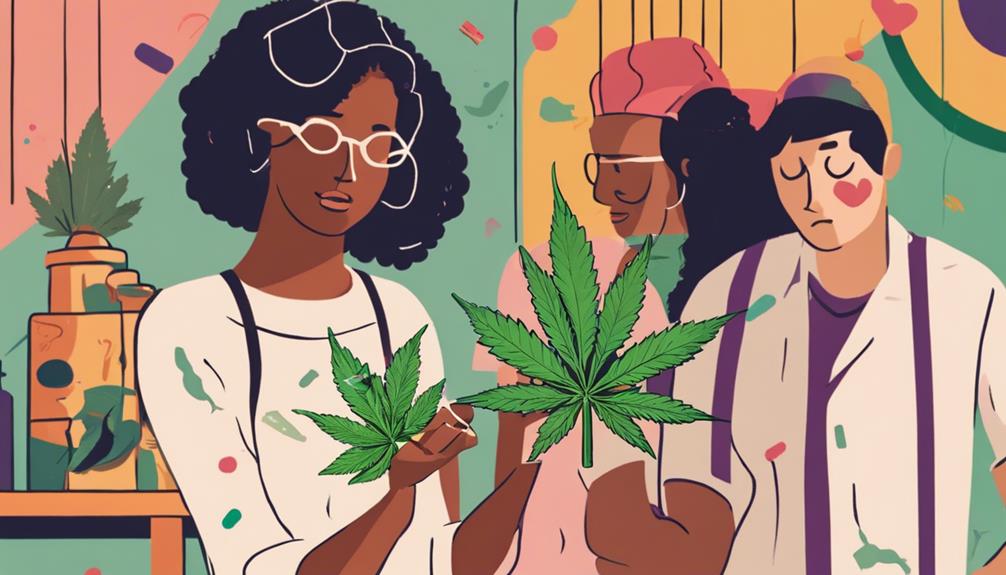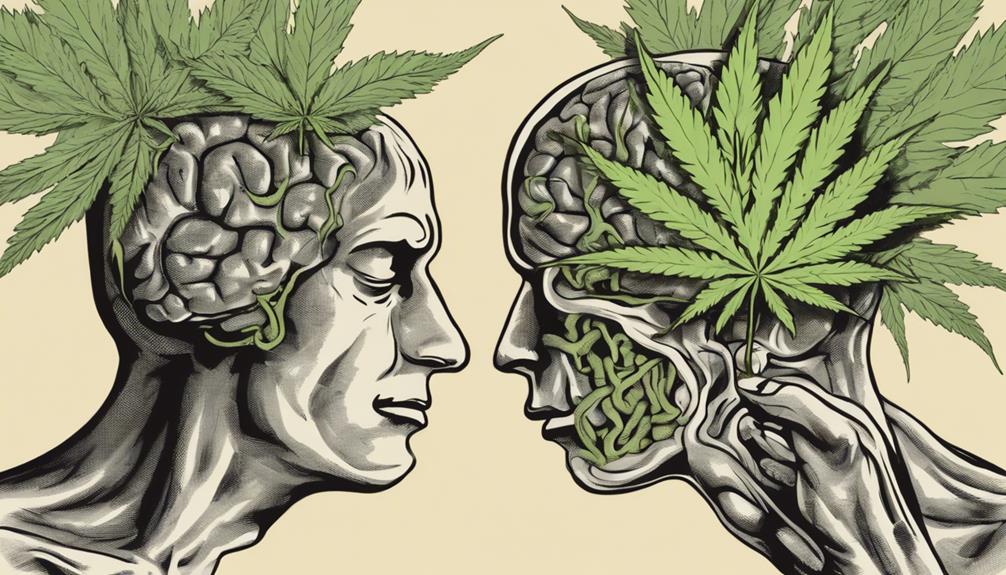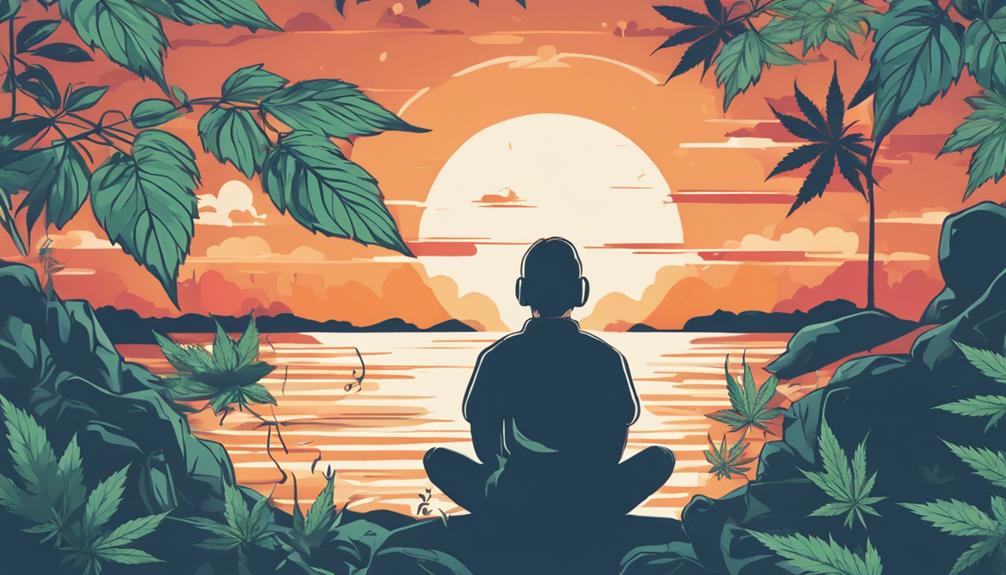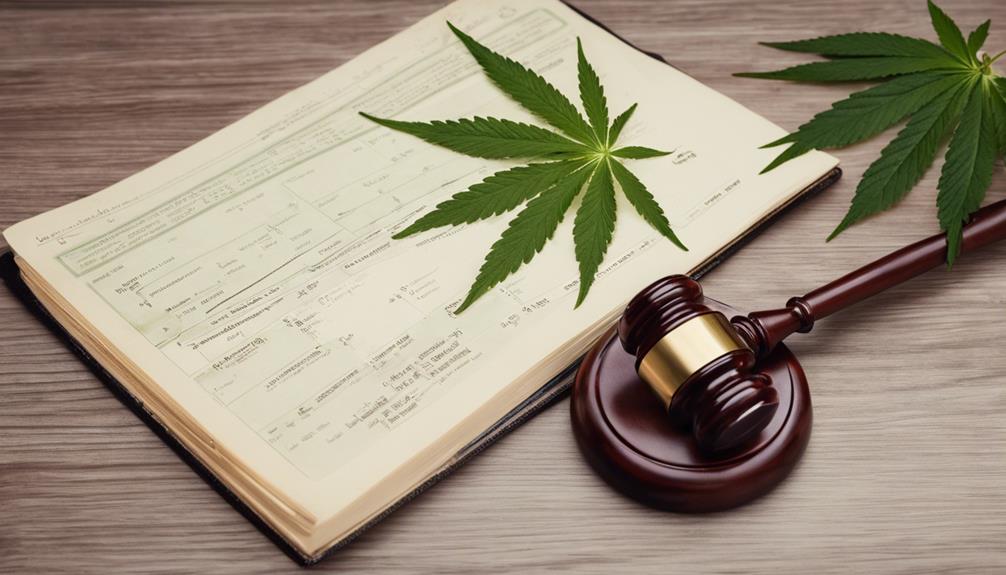You’re likely aware that both medical and recreational cannabis are praised for their anxiety-relieving qualities. However, have you ever wondered which of the two is more effective? Medical cannabis is often prescribed by health professionals and its content regulated for safety and efficacy. In contrast, recreational cannabis is typically used for enjoyment, with potency levels that can vary widely. This raises the question: which one offers better anxiety management? The answer may not be as straightforward as you might think, and it could surprise you. Are you ready to explore further?
Understanding Medical Cannabis

Understanding medical cannabis is crucial when discussing its role in managing anxiety. This substance, derived from the cannabis plant, is increasingly recognized for its potential medical benefits. Its use isn’t about getting ‘high’; it’s about health and well-being.
Medical cannabis contains numerous compounds, with THC and CBD being the most prominent ones. THC can induce feelings of euphoria but also has pain-relieving properties. CBD, on the other hand, is non-psychoactive; research suggests it can alleviate symptoms of anxiety. Understanding these compounds’ balance can help tailor a medical cannabis treatment that minimizes risk while optimizing benefits.
Patient access to medical cannabis varies widely by state and even city. It’s essential to familiarize yourself with local laws and regulations. Despite these bureaucratic hurdles, many patients find the potential benefits of medical cannabis worth pursuing—a personal journey requiring careful consideration and guidance from healthcare professionals.
The Basics of Recreational Cannabis
Transitioning from medical to recreational cannabis, it’s crucial to understand the basics. Recreational use refers to the consumption of cannabis without a medical prescription, often for enjoyment, relaxation, or personal discovery.
The difference between medical and recreational cannabis lies in their legal ramifications. The legality of recreational cannabis varies widely across states and countries. In some areas, it’s completely permissible; in others, it’s heavily penalized. Understanding these legal implications is pivotal to ensure you’re not inadvertently breaking any laws.
It’s also important to remember that recreational cannabis can have a greater variation in potency compared to its medical counterpart because it isn’t subject to the same stringent testing and regulations as medical cannabis. As a result, the effects can be more unpredictable—posing a potential risk for individuals prone to anxiety.
When using recreational cannabis, we recommend starting with a low dose and gradually increasing it to better manage any potential rise in anxiety. Always be mindful of your consumption and the potential outcomes, especially if you’re using it as a tool for managing anxiety.
Cannabinoids: The Active Ingredients

You might be familiar with the terms ‘medical’ and ‘recreational’ cannabis; however, understanding cannabinoids—the active ingredients in cannabis—is essential for effectively managing anxiety. Recent cannabinoid research has revealed potential therapeutic benefits that play a significant role in anxiety relief.
Cannabinoids interact with receptors in your brain—impacting neurotransmitters and calming the nervous system. THC and CBD are the most researched cannabinoids. While THC provides euphoria, it may exacerbate anxiety for some; CBD, on the other hand, has shown promising results as a natural alternative for anxiety relief.
Research suggests that CBD might help regulate serotonin levels—a hormone that stabilizes our mood and feelings of well-being. Low serotonin levels are commonly associated with depression, and in some cases, not having enough serotonin may trigger anxiety.
While the therapeutic benefits of cannabinoids are becoming more evident, it’s essential to remember that everyone’s experience or response will be unique. Your body chemistry, overall health, and personal comfort with cannabis products all play a role. Understanding this can help you make informed decisions about using cannabis for anxiety management.
Anxiety: A Brief Overview
In today’s fast-paced world, anxiety disorders have emerged as prevalent mental health issues. You or someone you care about might be grappling with symptoms of anxiety. This isn’t merely about feeling stressed or worried; it’s a complex condition that can severely impact daily functioning.
Anxiety disorders are characterized by excessive and persistent worry and fear about everyday situations—far from the temporary stress or fear you might feel before a job interview or public speaking event. It’s intense, constant, and exhausting.
To understand better: according to the Anxiety and Depression Association of America (ADAA), anxiety disorders affect 40 million adults in the United States every year—that’s approximately 18.1% of the population annually. Yet only 36.9% of those suffering receive treatment.
Various methods are available for stress relief—from cognitive-behavioral therapy to medication—but there has been growing interest in using cannabis for managing anxiety. This has led to significant debate: which is better—medical cannabis or recreational? The answer isn’t straightforward but we’re here to help you understand.
How Cannabis Interacts With Anxiety

Over 30 U.S. states have now legalized the use of medical cannabis, with many people turning to it as a natural remedy for anxiety. To understand its potential benefits and risks, it’s essential to comprehend how cannabis interacts with anxiety.
Cannabis contains compounds known as cannabinoids—the most common being CBD and THC. CBD is recognized for its calming effects, while THC can induce feelings of euphoria. When dealing with anxiety, these compounds can play a significant role in how you respond to stress and anxiety triggers.
Research suggests that CBD can enhance signaling through serotonin receptors—offering a mood lift and relieving stress. Conversely, high doses of THC can worsen anxiety symptoms—suggesting that not all cannabis is created equal in terms of managing anxiety.
It’s also important to consider medication interactions. If you’re on other treatments for anxiety, introducing cannabis could have unpredictable effects. Some studies suggest it could amplify the impact of certain medications; however, it could also counteract them or increase side effects.
Medical Cannabis for Anxiety Management
Curious about how medical cannabis can be used for managing anxiety? You’re not alone. The therapeutic use of cannabis is gaining traction—especially for relieving anxiety—but choosing any random cannabis product isn’t the solution; strain selection and dosing strategies matter.
Selecting the right strain is key: certain strains are known for their calming effects—for instance, Indica strains rich in cannabidiol (CBD) are often recommended for anxiety due to their relaxing properties. Conversely, Sativa strains may increase anxiety in some people due to their stimulating effects. Always consult a professional for the best strain for your specific needs.
Dosing strategies also play a vital role: too much can exacerbate anxiety, while the right amount can provide relief. A common approach is starting low and slow—gradually increasing the dose while closely monitoring your response.
Recreational Cannabis Effects on Anxiety

Let’s explore the impact of recreational cannabis on anxiety. Recreational consumption of cannabis is often associated with temporary relaxation, which can provide some users with relief from anxiety. However, it’s essential to consider the different strains and potencies of cannabis used recreationally—not all will yield the same results when it comes to managing anxiety.
Research suggests that low doses of THC—the psychoactive component of cannabis—can reduce stress; however, higher doses might worsen symptoms of anxiety. Additionally, the strain of cannabis plays a significant role—for example, Sativa strains may uplift your mood and energy levels while Indica strains tend to be more soothing—potentially better for relieving anxiety.
Potential Side Effects of Both Types
All forms of medication—including medical and recreational cannabis—come with potential side effects; it’s crucial you’re aware of them.
Short-term effects from both types may include dizziness, dry mouth, impaired memory, and slowed reaction times—it’s important to understand these effects particularly if you’re responsible for the care or wellbeing of others.
The long-term risks associated with cannabis can be more serious. Continued use may lead to dependency or addiction. It’s also linked to cognitive impairment—especially when used heavily during adolescence. Additionally, chronic use can lead to respiratory problems, similar to those experienced by tobacco smokers.
However, it’s worth noting that everyone’s reaction to cannabis varies widely. Factors like your genetics, overall health, and frequency of use can all influence your experience—that’s why it’s crucial to monitor your reactions closely and consult with a healthcare provider if you notice any adverse effects.
Legal Considerations and Usage

Navigating the landscape of cannabis legislation can be challenging. The legal regulations for both medical and recreational cannabis vary widely from state to state—as a caregiver or health provider, understanding your state’s specific laws is fundamental.
Medical cannabis is typically more strictly regulated—often requiring a doctor’s recommendation and a state-issued medical marijuana card. Conversely, recreational cannabis—where legal—can often be purchased by anyone over the age of 21.
Beyond legal considerations are dosage guidelines: medical cannabis dosage is usually determined by a healthcare professional and personalized according to the patient’s specific needs.
With recreational cannabis, however, the user determines the dosage—which could potentially lead to misuse or overuse.
While both types of cannabis can be used for managing anxiety, it’s important that legal regulations and dosage guidelines are taken into account. Stay informed about local laws regarding cannabis use—especially if you’re in a position to advise or assist others.
Personalizing Your Cannabis Use
In light of these considerations, personalizing your cannabis use becomes a crucial step in effectively managing anxiety. It’s not a one-size-fits-all scenario: dosing strategies and lifestyle factors play pivotal roles in determining the effectiveness of cannabis for anxiety management.
Consider dosing strategies: they’re important for tailoring cannabis use to your needs. Start with a low dose—especially if you’re new to it—and gradually increase until you reach your “sweet spot”—the dose that gives you maximum relief with minimum side effects. Remember, it’s not about getting high; it’s about getting relief.
Next, consider lifestyle factors: your diet, sleep patterns, and level of physical activity can influence how your body responds to cannabis. For instance, a healthy diet and regular exercise can enhance the therapeutic effects of cannabis while stress and poor sleep can dampen them—so ensure you’re leading a balanced lifestyle.
Conclusion
So which is better for managing anxiety—medical or recreational cannabis? It’s ultimately a personal choice. However, an interesting fact is that 47% of users report using cannabis for anxiety management. Remember that effects can vary based on the type and potency of the product—and legality is also an important factor to consider. Use this guide to make an informed decision and always consult with a healthcare professional when considering using cannabis for anxiety.
A friendly suggestion: why not reach out to us at Fells Point Cannabis Docs of Maryland? Our team is always ready to help you navigate your options and make the best decision for your wellbeing. Give us a call today at (410) 401-4200—we look forward to hearing from you!

